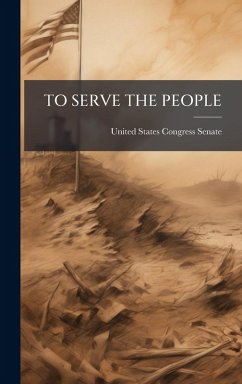
Preparing for the Inevitable
Versandkostenfrei!
Versandfertig in über 4 Wochen
27,99 €
inkl. MwSt.
Weitere Ausgaben:

PAYBACK Punkte
14 °P sammeln!
This monograph seeks to determine if the U.S. Army adequately prepares company grade officers to interact successfully with non-governmental organizations (NGOs) during humanitarian assistance and peace operations. It briefly analyzes the current operational environment and highlights that the U.S. Army is conducting Military Operations Other Than War (MOOTW) more frequently than in previous years. The author examines the culture and numerical explosion of NGOs and discusses their presence and participation in future operations. Using doctrinal information and the historical case studies of op...
This monograph seeks to determine if the U.S. Army adequately prepares company grade officers to interact successfully with non-governmental organizations (NGOs) during humanitarian assistance and peace operations. It briefly analyzes the current operational environment and highlights that the U.S. Army is conducting Military Operations Other Than War (MOOTW) more frequently than in previous years. The author examines the culture and numerical explosion of NGOs and discusses their presence and participation in future operations. Using doctrinal information and the historical case studies of operations in Iraq, Somalia, and Haiti, successful and unsuccessful NGO-military interactions are examined. The author emphasizes the positive correlation that historically exists between effective interactions and mission success. Based on operational experiences, the unique knowledge and skills required for successful interactions with NGOs at the company grade officer-level are determined. Using this information as a baseline, the army's leader development system is analyzed and the author determines that the current system does not systematically prepare company grade officers for successful interactions with NGOs. In conclusion, recommendations are offered to improve company grade officer preparation for future operations. This work has been selected by scholars as being culturally important, and is part of the knowledge base of civilization as we know it. This work was reproduced from the original artifact, and remains as true to the original work as possible. Therefore, you will see the original copyright references, library stamps (as most of these works have been housed in our most important libraries around the world), and other notations in the work. This work is in the public domain in the United States of America, and possibly other nations. Within the United States, you may freely copy and distribute this work, as no entity (individual or corporate) has a copyright on the body of the work. As a reproduction of a historical artifact, this work may contain missing or blurred pages, poor pictures, errant marks, etc. Scholars believe, and we concur, that this work is important enough to be preserved, reproduced, and made generally available to the public. We appreciate your support of the preservation process, and thank you for being an important part of keeping this knowledge alive and relevant.












